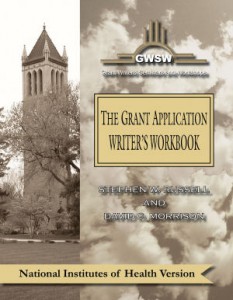Reviewer Fatigue implies that an Editor’s Request to Review a manuscript is more likely to be ignored or declined today than it would have been 10-15 years ago. Although many Editorials address concerns about Reviewer Fatigue (e.g., Arns, M. Nature, 2014), data supporting this claim are sparse in the Biomedical Literature. Publications in other fields, however, indicate that Reviewer Fatigue is real (Fox, CW, et al Research Integrity and Peer-Review, 2017; Warne, V. Learned Publishing, 2016.)
The potential hazard of Reviewer Fatigue is that it can both delay publication and reduce the quality of published manuscripts. If an Editor contacts 3 potential reviewers, and each reviewer is given 1 week to respond to the request and an additional 3 weeks to review the manuscript, the process could be completed within a month if all reviewers accept the assignment. If 2 reviewers decline the request after 5 days, additional requests must be sent at that time. If 1 of these latter requests is ignored, the Editor must wait the full week before contacting another reviewer, and the review process extends to 6 weeks. Further delays occur as each subsequent wave of requests to review are declined. Unfortunately, this scenario is not uncommon. Some Editors have adapted by contacting more reviewers than required in the initial wave of requests (i.e., if 3 reviewers are required, 5 initial requests may be sent). This can speed up the process, but results in reviewers receiving more requests, which contributes to Reviewer Fatigue; the probability of declining requests to review increases as the number of requests increases (Fox, CW, et al, 2017).
The potential negative impact of Reviewer Fatigue on the quality of published manuscripts stems from the perspective that an Editor is likely to rank potential reviewers based on their perceived expertise. If the first 6 reviewers decline the assignment, requiring requests of reviewers 7 through 9, reviewer expertise and/or experience may drop. Such a drop can result in critiques that are lacking in rigor and thus less helpful to Editors, who decide whether to Accept or Reject manuscripts, or to Authors, whose manuscripts may be improved by insightful reviewer comments.
Several factors likely contribute to Reviewer Fatigue. First, the number of citations in the PubMed and Scopus databases doubled during 1993-2010 and 2000-2013, respectively (Lu, Z. Database, 2011; Arns, M. Nature, 2014). Assuming that this represents a doubling in the number of manuscripts published, the number of peer-reviews needed would have also doubled during these intervals. Second, a recent increase in the number of journals has intensified competition for manuscripts, and some journals have responded by decreasing the time permitted to complete reviews. Reviewers given 2 weeks to complete a review are probably more likely to decline that assignment than reviewers given 4 weeks. Third, in the current hypercompetitive environment for research funding, many authors submit their manuscripts to journals with the highest Impact Factors, even if there is little chance of acceptance. Consequently, a manuscript may be reviewed and rejected by several journals before ultimately being accepted by the journal it should have been submitted to initially, increasing the burden on reviewers. Finally, the number of de novo grant applications submitted to the NIH tripled between 1995 and 2016, with a corresponding decrease in the probability of success (Lauer, M. 2016). As success rates for grants decrease, researchers are forced to spend more time writing proposals, with current estimates suggesting that researchers spend 30-40% of their time writing grant proposals (Scientific American 2011). As more time is spent writing grant proposals, less time is available for everything else, including reviewing manuscripts.
Despite concerns about Reviewer Fatigue and peer-review, in general, a recent survey revealed that 91% of researchers believe that the last manuscript they published was improved through peer-review (Mulligan, A et al, ASIS&T, 2012). Further, most researchers believe peer-review is essential to scientific progress. Consequently, concerns about the potential negative impact of Reviewer Fatigue on peer-review have spawned innovation. For example, some journals have implemented a fast track option in which reviewers are paid to perform reviews, and authors pay a premium to speed up the review process (Akst J The Scientist, 2015). The response to this approach to motivate reviewers has not been universally positive. Another innovation, used by the journal mSphere, puts authors in the driver’s seat for the peer-review process. Authors submit their manuscript directly to two external reviewers they have selected, respond to critiques, and submit the critiques, their response to those critiques, and the revised manuscript to the journal. The journal makes a final decision within 5 days of submission, without requesting additional experimentation or revision.
Innovations for dealing with Reviewer Fatigue, such as the two mentioned above, are likely to continue to evolve. What is unlikely to change, however, is the need for many journal Editors to identify additional manuscript reviewers, providing an opportunity for Early Stage Investigators to become involved. Once you have published several manuscripts as a first and/or senior author, consider volunteering your services to Editors of journals in which you have published. The experience you gain as a Reviewer is likely to provide new insights regarding manuscript preparation, and will also help build your scientific network, both of which are essential to your career.
Chris Papasian presents the GWSW Seminar Writing and Publishing High-Impact Research Manuscripts and is coauthor of our workbook, Writing for Biomedical Publication. He is currently Professor and Chair of Biomedical Sciences at the UMKC School of Medicine, and Editor of the ASM journal, Clinical and Vaccine Immunology.

